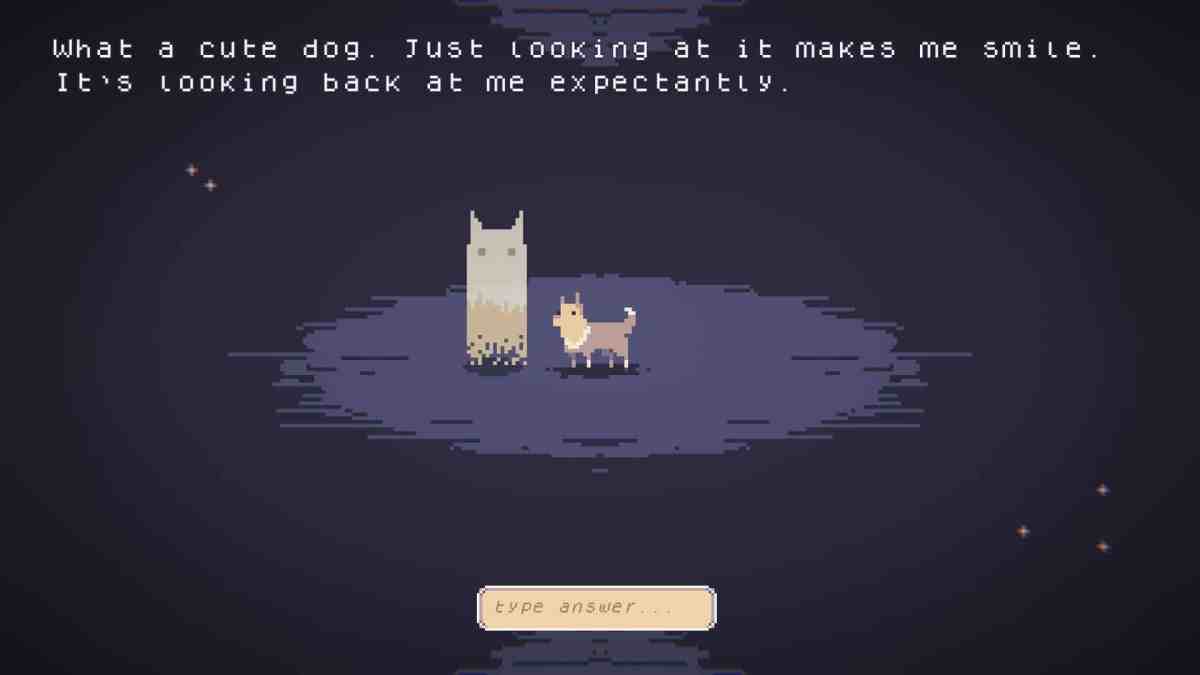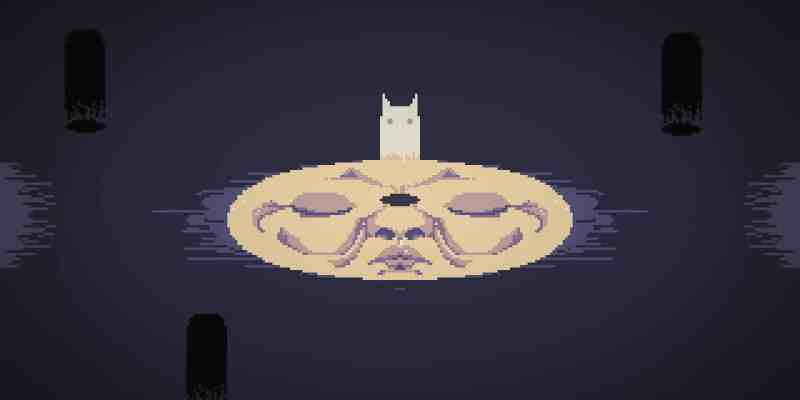In the early days of gaming, text parsers were everywhere. The Zork series used typed commands to explore dangerous dungeons, and The Hitchhiker’s Guide to the Galaxy game was just as cleverly written as the books themselves. Talking directly to the computer made the possibilities of these games feel infinite — solutions limited only to what you could imagine. Of course, this open-endedness also caused frustration. It could be difficult to tell whether an answer to a puzzle was incorrect or if the text was not phrased in a way the parser understood.
Once graphics-based games became the norm, text parsers were phased out over a short few years, replaced by mouse inputs or branching choices. While this shift in input method benefited most genres, it does make me a little sad that text parsers have nearly disappeared entirely. I have a soft spot for parser games — I played through the Space Quest series when I was learning to read, and my husband and I puzzled through King’s Quest together when we first started dating. I was delighted, then, to see that I Wish I Was brought out the ageing mechanic for one last hurrah. Combining parser puzzles with beautiful pixel art and a mysterious aura, the free game is a fitting tribute to the adventure games of the past.
I Wish I Was follows the meandering path of a confused ghost. Artifacts from their life lie strewn across a purple void, but they cannot remember their connection to these objects. Aided by three darker shades, who each have a request of the restless protagonist, the spirit slowly reclaims the memories of their past, finding a moment of peace before moving on to whatever comes next.

The core puzzling of I Wish I Was involves finding the correct interaction for each of the various objects, such as hugging the dog or watering a plant. Once a task has been completed, the ghost will recall a memory, which will give a hint for solving one of the other puzzles. Initially, I approached the game all wrong by following traditional parser rules: “look” at everything, try to “get” the various items, use lots of synonyms when an initial guess does not work.
However, I Wish I Was is about collecting useful words to try on different objects, rather than trying to logic out what one might do with a desk or a bed. The ghost’s connection to these items is personal, and thus the words they use are not so obvious, such as the need to “hide” in a bed, rather than “sleep.” Key words are highlighted in purple, cutting down the parser guessing-game further. A hint command gives clues at just the right level of usefulness, a push in the right direction without spoiling the answer.
The result is a thoughtful, clever puzzler, one that expects the player to make unusual connections between words and objects — but connections that make a lot more sense than in traditional adventure game challenges. I enjoyed how the puzzles and the story fed back into each other, each recollection a clue for later on. Artifacts shuffle around, mimicking the confused state of the ghost’s memories. Each object solved gives more insight into the protagonist’s life, someone who was quite anxious on Earth but can finally find peace in the calm purgatory.
Indeed, I Wish I Was has one of the most peaceful afterlife depictions I have seen. Despite the maze-like layout and the eerie windy noises in the background, the journey always feels like a beneficial one, where the ghost learns something with every object discovered. Lovely pixel art adds to the pleasant atmosphere too, all depicted in soft shades of purple and yellow.
The text parser is well behaved, the single-word style cleverly avoiding issues with syntax errors. I would have liked a differentiation between “answer is wrong” and “answer is not understood” — such a sign would have made it clear early on that I needed to write “hug” and not “hug dog.” I also had one input not work that I was certain was correct: I had the word “flip” remaining and a table with cards on it, but flipping the card did not work. I went through and solved all the other puzzles but had no new words that would suit the situation. In the end, I made a logical guess on what the card might be and was able to progress.
I Wish I Was gave me a lovely trip down memory lane, a recollection of why text parsers felt so much more intimate than the click of a mouse. The puzzles offer just the right level of difficulty and are woven into the narrative with ease. Developer Lulatschia created the game within three weeks for a university project, and the level of polish in such a short time is really impressive. If you enjoyed the game, consider donating on its itch.io page.
Next week we will be playing Pureya, a minigame collection where the game changes every 10 seconds. The game can be downloaded from itch.io. If you would like to share your thoughts, discussions will be happening in the Discord server.
